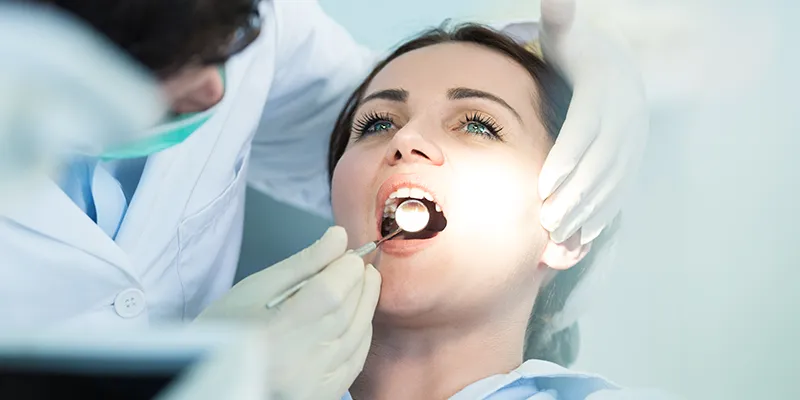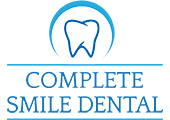When we think about our health, the first thing that comes to mind might not be the relationship between the condition of our mouths and the wellbeing of our digestive systems. However, recent studies have shed light on the potentially significant impact oral health, in particular oral pathogens, may have on our gut health.
Research suggests that oral bacteria can migrate to the gut, potentially disrupting its delicate balance of microorganisms, compromising immune defences and leading to intestinal inflammation. This is still an active area of research, and the specifics of this connection are being explored.
Mouth is the gateway to digestive health
The human mouth is a bustling ecosystem, hosting around 700 different microorganisms, collectively forming the oral microbiota. This diverse microbial community, primarily comprising bacteria, fungi and viruses, is crucial in maintaining oral health. Among the key inhabitants are notable species like Streptococcus mutans, Porphyromonas gingivalis, Staphylococcus and Lactobacillus.
Imagine your digestive tract as a river, with the mouth acting as its source. Every time you swallow, you introduce thousands of bacteria into the digestive system, both beneficial and harmful. Contrary to popular belief, the goal isn’t to eliminate all bacteria in the mouth; rather, it’s about fostering a healthy balance.
Probiotic strains of bacteria in the mouth perform protective functions, including the release of specific acids that control the harmful bacteria causing tooth decay and protect against strains of bacteria that lead to gum disease and bad breath. Unfortunately, our oral care practices, which may include overly-aggressive antibacterial mouthwashes, inadvertently eliminate some of these beneficial bacteria, disrupting the equilibrium of the microbiome.

How can oral bacteria translocate from the mouth to the gut?
Swallowing and saliva
When you swallow, a significant number of microorganisms from the oral cavity are carried along with saliva into the gastrointestinal tract. This natural process exposes the gut to a variety of oral bacteria. While the stomach’s acidic environment can eliminate some bacteria, others may survive and reach the intestines.
Bloodstream circulation
Specific oral conditions, such as gum disease, gingivitis, or dental procedures, can result in the infiltration of bacteria into the bloodstream. When there’s inflammation or tissue damage in the gums, bacteria from the oral cavity may enter small blood vessels. Once in the bloodstream, these bacteria can be travel to distant sites in the body, including the gut, through the circulatory system.
Lymphatic system connection
The lymphatic system, a network of vessels that carries lymph (a fluid containing white blood cells), provides another potential pathway for the translocation of oral bacteria. Bacteria from the oral cavity may gain access to the lymphatic system in a similar way to how they enter the bloodstream. These bacteria may then travel to different parts of the body, such as the gut.
The extent and significance of these pathways for general oral-gut health are still being investigated. As our understanding expands, we become increasingly able to comprehensively protect our overall well-being.
How do oral pathogens affect digestive health?
Inflammation and immune response
When oral pathogens make their way into the gut, they set off a cascade of events that may potentially trigger an immune response. These pathogens possess molecular patterns recognised by the immune system. As they translocate to the gut, they activate immune cells, especially in the mucosal lining of the gastrointestinal system. This increased immune activity can lead to chronic inflammation, although the specific mechanisms and clinical significance for various digestive conditions are still being explored.
Dysbiosis
The introduction of oral pathogens into the gut may potentially disrupt the delicate balance of the gut microbiota. This dysbiosis can lead to an overactive immune response, creating an environment conducive to persistent inflammation.
The gut’s intricate microbial community plays a crucial role in regulating immune homeostasis, and any significant disturbance can have far-reaching consequences. However, the individual impact and long-term implications of oral bacteria on gut dysbiosis vary depending on different factors, like oral health status and gut microbiome composition.
Digestive disorders
Persistent inflammation in the gut is closely linked to a range of digestive disorders, such as inflammatory bowel diseases (IBD), Crohn’s disease and ulcerative colitis. The prolonged immune response that oral pathogens cause may exacerbate current conditions or lead to the development of new difficulties in digestive health.
Preventive care for a healthy oral microbiome
Regular dental check-ups: Schedule routine visits to your dentist for professional cleanings and comprehensive check-ups. Regular dental examinations not only address immediate concerns but also allow for the early detection and prevention of potential oral health issues.
Consistent oral hygiene practices: Daily brushing and flossing remain fundamental to oral health. Use fluoride toothpaste and a gentle mouthwash to effectively clean teeth, gums and the tongue. Proper oral hygiene helps control harmful bacteria and supports a thriving microbiome.
Mindful nutrition: Adopting a diet rich in microbiome-friendly foods is a preventive strategy for oral health. Eliminate processed foods and sugars; opt for whole, unaltered foods; and incorporate fiber-filled veggies and probiotic-rich foods. This dietary approach supports the delicate balance of the oral microbiome.
Hydration: Drinking an adequate amount of water is not only essential for overall health but also promotes saliva production. Saliva helps neutralise acids, cleanse the mouth and support the natural defences of the oral microbiome.
Avoidance of harmful habits: Steering clear of detrimental habits, such as smoking and excessive alcohol consumption, is crucial for maintaining a healthy oral microbiome. These habits can disrupt the balance of oral bacteria and contribute to various oral health issues.
Stress management: Chronic stress can impact oral health by compromising the immune system and influencing the oral microbiota. Incorporate stress management techniques, such as meditation or exercise, to support overall well-being, including a healthy oral microbiome.
Nurturing health from mouth to gut

The mouth is more than just an entry point for food; it’s a key player in maintaining our health. Recent studies highlight the need to maintain balance in our oral microbiome, not just to prevent dental issues but also to safeguard against broader health problems. Understanding the partnership between oral and digestive microbes helps us take proactive steps to care for our health.
Implementing simple practices like mindful oral care, following a diet that supports microbial diversity, and paying attention to early signs in our mouths, can strengthen the synergy between our oral and digestive health. This holistic approach recognises how our body’s systems are interconnected and interdependent.


